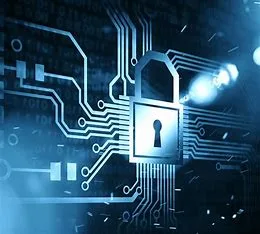As globetrotters, we’re often drawn to the convenience of public Wi-Fi networks. Whether at airports, cafes, or hotels, these networks keep us connected. However, they also pose significant risks to our online security. Using a VPN for travelers is essential. Fear not! Here are practical VPN tips to safeguard your sensitive data while traveling:
1. Choose a Reliable VPN Provider
Before you embark on your journey, select a reputable VPN service. When choosing a VPN for travelers, consider the following:
- No-Logs Policy: Opt for a VPN that adheres to a strict no-logs policy. Your online activities should remain confidential.
- Strong Encryption: Look for AES-256 encryption—the gold standard for data protection.
- Server Locations: Choose a VPN with servers in your travel destinations. This ensures optimal performance and minimizes latency
We recommend checking out Nettica for great VPN service.
2. Activate Your VPN Everywhere
- Airport Lounges: Resist the urge to check your email without a VPN. Activate it as soon as you connect to any public Wi-Fi network. Travelers should always use a VPN here.
- Cafes and Hotels: Whether sipping lattes or checking in, always use your VPN. It shields your data from potential eavesdroppers.
3. Beware of Rogue Hotspots
- Evil Twins: These malicious hotspots mimic legitimate networks. Always verify the network name with staff or use your mobile data instead. Using a VPN for travelers helps encrypt your data.
- Spoofed Networks: Cybercriminals create fake Wi-Fi networks. Your VPN will encrypt your traffic even if you accidentally connect to one.
4. Two-Factor Authentication (2FA)
- Enable 2FA for your accounts. Even if someone intercepts your login credentials, they won’t get far without the second authentication factor. This is particularly crucial for travelers using public Wi-Fi.
5. Update Your Devices
- Keep your devices (laptops, phones, tablets) updated with the latest security patches. Vulnerabilities can be exploited on unpatched systems. A VPN for traveling users also adds an extra layer of security.
6. Avoid Sensitive Transactions
- Banking and Shopping: Refrain from conducting sensitive transactions (like online banking or shopping) on public Wi-Fi. Wait until you’re on a secure network. A VPN for travelers ensures your transactions are secure.
- Password Changes: Save password changes for later. You don’t want them intercepted.
7. Disconnect When Not Needed
- When you’re done browsing, disconnect from the VPN. It conserves battery and ensures you’re not inadvertently using it on trusted networks. Remember, a VPN for travelers is primarily for untrusted connections.
Remember, a VPN acts as your digital shield. By following these tips, you’ll surf securely, even amidst bustling airports and cozy cafes. Bon voyage! 🌐🔒
Check out our blog for more information on VPNs!
Disclaimer: Always choose reputable VPN services and avoid free VPNs that may compromise your privacy.



